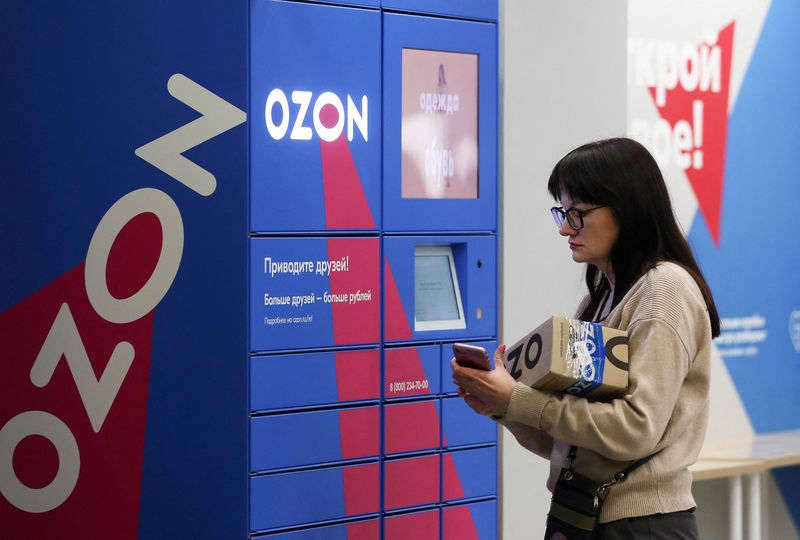MOSCOW (Reuters) - Russian e-commerce firm Ozon said on Thursday it had started selling goods through a parallel imports mechanism on its platform, benefiting from legislation Russia has brought in to try to limit the impact of Western sanctions.
Hit by unprecedented sanctions and supply chain issues, Russia has legalised so-called parallel imports, which allow retailers to import products from abroad without the trademark owner's permission.
"Goods imported with the help of parallel imports are available on Ozon," the company told Reuters. "We have already started selling popular electronics brands on Ozon, including smartphones and their components."
Ozon said parallel imports gave Russian consumers a range of products but said it was working to prevent counterfeit items appearing on its platform, requiring sellers to confirm the proof of originality of the goods they sell.
Ozon said it would not disclose the names of brands.
Russia has included a wide range of goods from foreign carmakers, technology companies and consumer brands in the parallel imports scheme, aiming at shielding consumers from business isolation by the West after regular imports slumped due to sanctions and logistics disruptions.
Scores of foreign companies have withdrawn from Russia over Moscow's actions in Ukraine even though they face the prospect of new laws being passed in coming weeks allowing Moscow to seize assets and impose criminal penalties.
Nike (NYSE:NKE) and Cisco (NASDAQ:CSCO) have both announced plans to exit on Thursday. They have joined McDonald's (NYSE:MCD), Renault (EPA:RENA) and others.
Ozon competitor Wildberries in March described the parallel imports scheme as an effective support measure, highlighting its importance for small and medium-sized businesses and for the import of socially-significant products.
Wildberries, like others in the sector, has continued selling some goods from brands that have suspended operations in Russia.
Electronics retailer Svyaznoy has expanded its range to sell games consoles and smartphones from the likes of Apple (NASDAQ:AAPL) and Samsung (KS:005930), the Kommersant daily reported on Thursday.

Svyaznoy told Reuters it was not an importer of appliances and electronics, but replenishes stocks available inside Russia.
Kommersant cited an industry source as saying that devices could be 10-20% more expensive than before Russia began what it calls its "special military operation" in Ukraine.